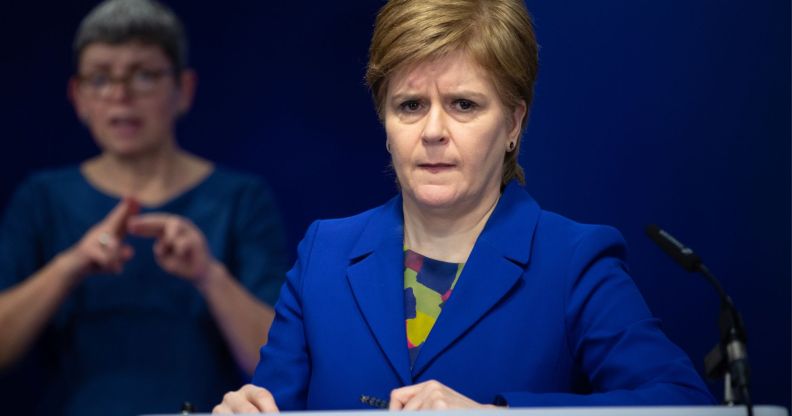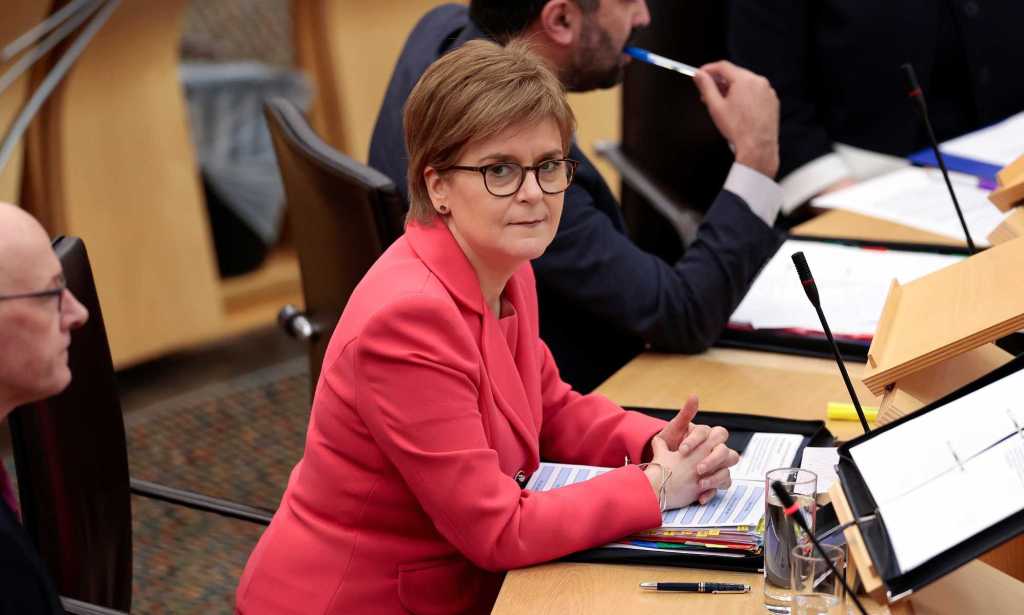Nicola Sturgeon to resign as Scotland’s first minister, leaving proud legacy of LGBTQ+ allyship

Nicola Sturgeon. (Getty)
Nicola Sturgeon is to resign as Scotland’s first minister.
Sturgeon announced her intent to stand down on Wednesday (15 February).
She confirmed that she is not resigning over the criticism she is facing over her support for trans rights, saying that no “short term pressure” could push her out of office.
Rather, she said she had assessed that she could no longer give the job everything it deserves, and wanted to make way for a new leader who could lead Scotland to independence.
Nicola Sturgeon has served as first minister and leader of the Scottish National Party since 2014, taking over after the SNP’s failed independence referendum.
She has continued to push for independence, losing a legal bid to force a second vote, and had vowed to fight the next elected as a de facto referendum.
A proud ally the LGBTQ+ community, she oversaw the passing of the Gender Recognition Reform (Scotland) Bill, designed to make it easier for trans people to access a Gender Recognition Certificate (GRC).

After the bill passed in Holyrood December 2022, the UK government took the unprecedented step of vetoing it.
Sturgeon had been vocal in her outrage, and had announced plans to challenge the Tories in court.
“In doing so we will be vigorously defending something else, and that is the institution of the Scottish Parliament and the ability of MSPs, democratically elected, to legislate in areas of our competence,” she told the BBC.
“In short, we’ll be defending Scottish democracy”.
The bill would have removed medical requirements from the GRC application process and lowered the age limit to 16. All a GRC is used for is to record a trans person’s gender on their birth, death, marriage and civil partnership certificate.
It will fall to her successor to see any potential legal challenge through – so far, no action has been confirmed.
In recent weeks Sturgeon had faced scrutiny over the case of Isla Bryson, a trans woman convicted of rape.
The media used Bryson’s case to criticise Sturgeon’s position on gender recognition – often ignoring the fact her bill would only have made the existing gender recognition process simpler, and would not have introduced any new rights.
Sturgeon argued against the conflation, and said that the Scottish Prison Service had acted appropriately (Bryson was temporarily held in a women’s prison, away from other prisoners, while being assessed, and was eventually housed in a men’s prison).
Sturgeon said Bryson should be treated as a rapist regardless of gender, and said she would not get into “the individual circumstances of that particular individual’s claims to be a woman”.
Sturgeon had also insisted that she would bring forward legislation to end conversion therapy in Scotland if the UK government did not take “serious action”.
Nicola Sturgeon has faced some criticism in the past
She was accused of failing to tackle transphobia within the ranks of the SNP in 2021, with swathes of young members quitting the party as a result.
Sturgeon said this “grieved her deeply”, and promised to make the SNP “a safe, tolerant or welcoming place for trans people”.
Click here to join our new PinkNews Alerts WhatsApp group for daily digests of our top LGBTQ+ news and features.
How did this story make you feel?

